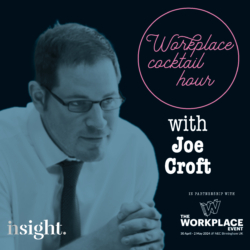To provide the best experiences, we use technologies like cookies to store and/or access device information. Consenting to these technologies will allow us to process data such as browsing behaviour or unique IDs on this site. Not consenting or withdrawing consent, may adversely affect certain features and functions.
The technical storage or access is strictly necessary for the legitimate purpose of enabling the use of a specific service explicitly requested by the subscriber or user, or for the sole purpose of carrying out the transmission of a communication over an electronic communications network.
The technical storage or access is necessary for the legitimate purpose of storing preferences that are not requested by the subscriber or user.
The technical storage or access that is used exclusively for statistical purposes.
The technical storage or access that is used exclusively for anonymous statistical purposes. Without a subpoena, voluntary compliance on the part of your Internet Service Provider, or additional records from a third party, information stored or retrieved for this purpose alone cannot usually be used to identify you.
The technical storage or access is required to create user profiles to send advertising, or to track the user on a website or across several websites for similar marketing purposes.
 Workers under 40 are 80 per cent less likely to have trusted workplace relationships compared to workers over 50, impacting their mental health, physical wellbeing and productivity, according to a new report from TELUS Health. The TELUS Mental Health Index sets out to explore the mental health of employed people in the United Kingdom, the United States, Canada, Europe, Singapore, New Zealand and Australia. (more…)
Workers under 40 are 80 per cent less likely to have trusted workplace relationships compared to workers over 50, impacting their mental health, physical wellbeing and productivity, according to a new report from TELUS Health. The TELUS Mental Health Index sets out to explore the mental health of employed people in the United Kingdom, the United States, Canada, Europe, Singapore, New Zealand and Australia. (more…)




































